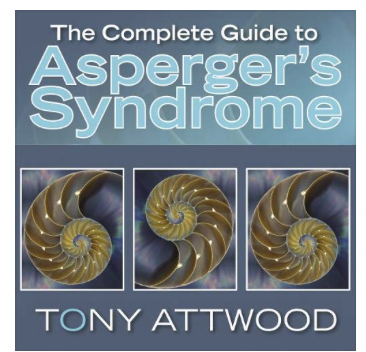
Yes ~ back in 2016 a year after my diagnosis once my emotions had settled down, and I used the developmental stages to reassess and re-narrate my upbringing in a relevant and accurate way. I basically used regression techniques to revisit the quarrelsome times of my childhood and explain to my memorised versions of my selves and others that we did not know I had Asperger's Syndrome, so all was forgiven and made a lot more sense as such.
I often recommend this book to the newly diagnosed or parents that have as such diagnosed children.
I'm reading it and it's having a strange effect on me. I keep crying at certain passages.
I'm reading it and it's having a strange effect on me. I keep crying at certain passages.
Coming to terms with one's life experiences and methodologies does rather tend to involve a fair bit of emotional release and acceptance work.
For me ~ I therapeutically dealt with all my angry and then tearful emotions from 1994 to 2013, so the book gave me very much a sense of enthusiastic self discovery and revelation, with the relief involving then a growing feeling of increasing contentment ~ in that the puzzle of my behavioural divergences had at last finally been solved in step-by-step developmental detail.
Are are you coping OK with the tearful passages?
I'm reading it and it's having a strange effect on me. I keep crying at certain passages.
Coming to terms with one's life experiences and methodologies does rather tend to involve a fair bit of emotional release and acceptance work.
For me ~ I therapeutically dealt with all my angry and then tearful emotions from 1994 to 2013, so the book gave me very much a sense of enthusiastic self discovery and revelation, with the relief involving then a growing feeling of increasing contentment ~ in that the puzzle of my behavioural divergences had at last finally been solved in step-by-step developmental detail.
Are are you coping OK with the tearful passages?
After my diagnosis, I watched a video on YouTube by someone called Temple something-or-other. I found her very boring, arrogant and unlikable. I said to myself, "If that's what being autistic is, then I'm not autistic."
Since then, I've avoided any books or videos on the topic. She really spoiled it for me.
I think it most likely that you are referring to Temple Grandin, and it is generally a good idea to consider that "Once you have met one person with autism; you have met one person with autism" ~ rather than going along with the one type is all types state of affairs, and all that.
I just saw this by chance on Audible and decided to have a listen. Certain passages have resonated with me and forced me to revisit painful memories and re-live traumas past traumas through the lens of my diagnosis. It's still very raw, so I stopped reading.
It is really important to pace one's self and take time to recover from having relived traumatic episodes in one's past, with this being so whether we do it on our own (in our own way) or along with others involving good old "I know just what you mean!" or "Me too!" therapy.
After my diagnosis, I watched a video on YouTube by someone called Temple something-or-other. I found her very boring, arrogant and unlikable. I said to myself, "If that's what being autistic is, then I'm not autistic."
Since then, I've avoided any books or videos on the topic. She really spoiled it for me. I just saw this by chance on Audible and decided to have a listen. Certain passages have resonated with me and forced me to revisit painful memories and re-live traumas past traumas through the lens of my diagnosis. It's still very raw, so I stopped reading.